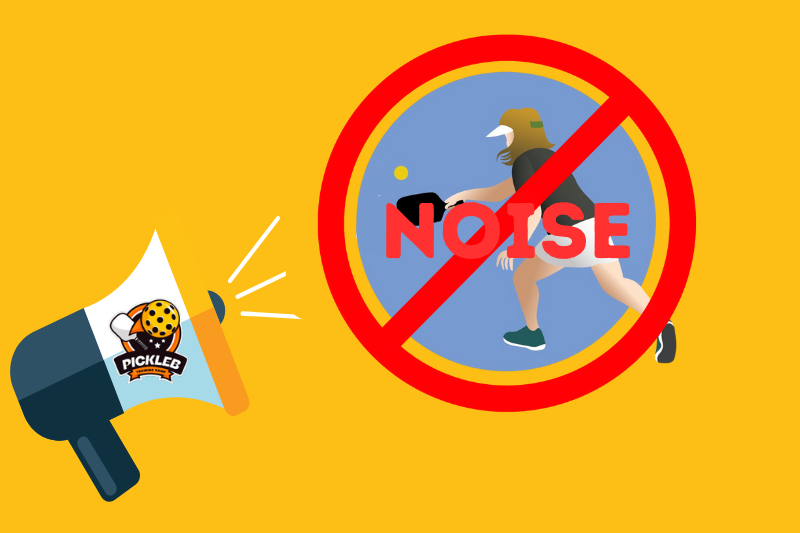Pickleball has grown in popularity in recent years, particularly among seniors. While a lot of people like playing and watching pickleball, others find it quite annoying. The major cause is the noise made by the ball when it strikes the paddle. It sounds like a loud pop or crack and may be heard from a long distance. Some pickleball court neighbors have complained to authorities or even filed lawsuits against the players for disrupting their peace. But how can this issue be resolved?
In this article, I’ll address why pickleball is so noisy, as well as some of the effects and causes of pickleball noise. I’ll also provide a few solutions that will please both players and non-players.
Why is pickleball so noisy?
Pickleball is a noisy game due to the nature of the equipment and the game itself. The paddle is often hollow with a honeycomb core, while the ball is made of hard plastic with holes in it. When the paddle strikes the ball, it makes a loud popping sound that can be heard from a long distance away. Furthermore, when the ball strikes the court surface, it might make a loud thud. The boom might feel considerably louder on indoor courts, where the sound can echo and reverberate.
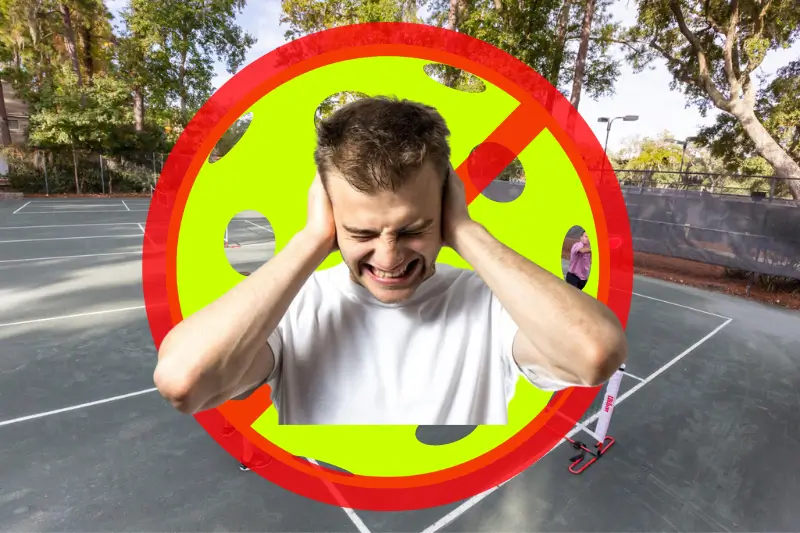
The noise level of pickleball is not harmful, but it may be annoying. According to a research conducted by Oakmont Village, a private neighborhood in Santa Rosa, CA, the sound level of pickleball measured from 100 feet away was about 70 decibels, which is comparable to the ambient noise in an active community. However, the high pitch and uneven pattern of the sound make it more conspicuous and irritating to the human ear. When they feel that the noise is bothersome, unpleasant, or disturbing, some people may initiate lawsuits against the pickleball players or even complain to the police.
What are the causes and effects of pickleball noise?
Pickleball noise is caused by a variety of elements, including the kind of ball, the type of paddle, the court surface, the court location, the court orientation, the number of players, timing, and the type of weather. Some of these elements are controllable or modifiable, while others are inherent in the game.

Pickleball noise has a variety of effects on both players and non-players. The loudness might be distracting, annoying, or demanding for the participants. It might make it difficult to hear the calls, communicate with your partner, or concentrate on the game. Non-players, particularly those living near the courts, may find the noise bothersome, disturbing, or distressing. It may disrupt their peace, their sleep, their job, or their leisure. It can also lead to resentment, rage, or confrontation between pickleball fans and noise-sensitive neighbors.
These negative impacts may result in pickleball noise complaints, which may result in legal, social, or environmental issues for the pickleball community.
What are some solutions that can reduce the noise?
Fortunately, certain pickleball noise reduction options help lower pickleball noise and make the game more pleasurable for everybody. Among these solutions are:
Use Quiet Pickleballs:
Quiet balls are softer and quieter than standard balls but still have a strong bounce and spin. However, not all silent balls are created equal. Some muted pickleballs are USAPA tournament-approved, while others are not. Some mute balls are suitable for outside play, while others are not. As a result, it is essential to select the appropriate mute ball for your game.
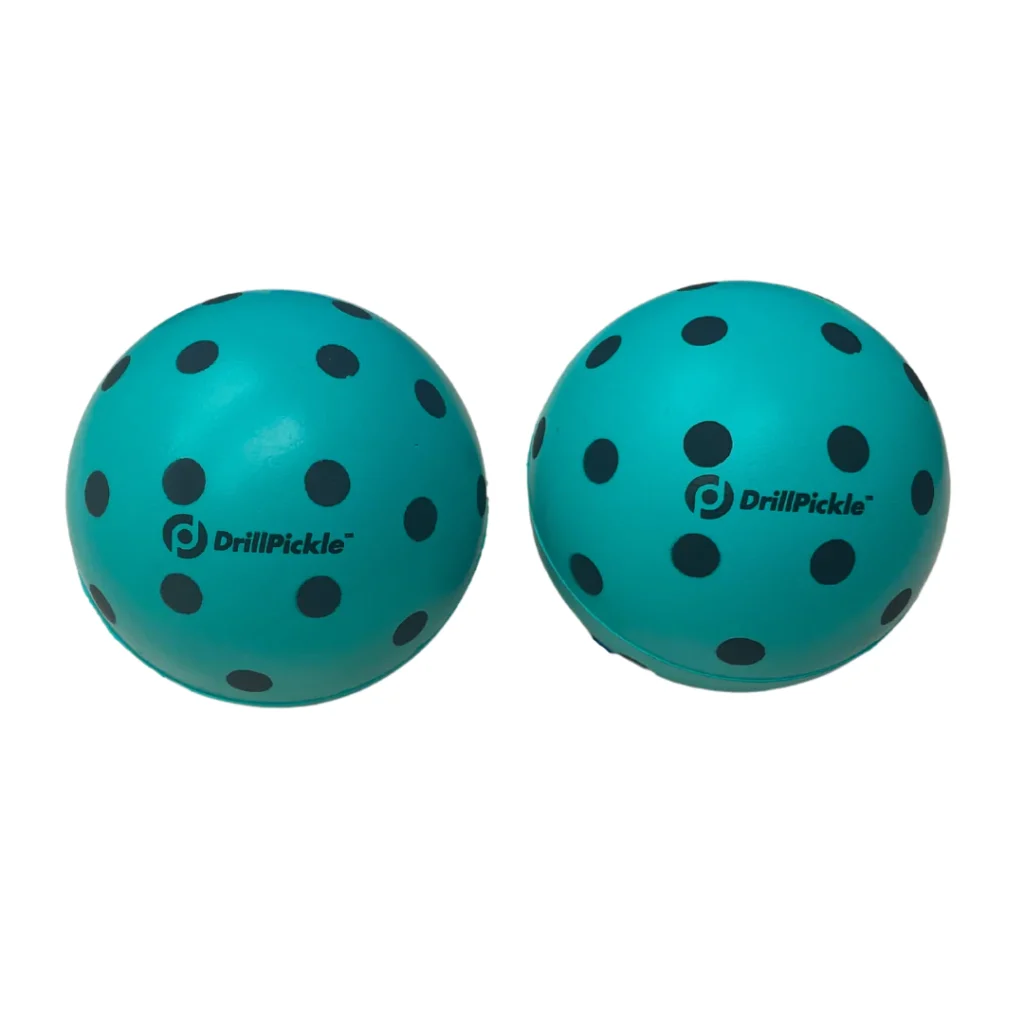
Among the quiet pikleballs that are suitable for outdoor play and USAPA-certified are Gamma Photon, Onix Fuse G2 Outdoor Ball, and Onix Fuse G2 Outdoor Ball.
Use quieter paddles:
Quieter paddles have a mixture of materials and designs that reduce the noise of the ball striking the paddle, such as wood, fiberglass, composite, thick core, smooth surface, or tiny sweet spot. Quiet paddles can also deliver good power, control, and spin, and some are USAPA-approved for competitive play.

Some noise reducing pickleball paddles that work well for both indoor and outdoor use are the JOOLA Perseus 16mm, Engage Pursuit MX Ultra 6.0, and CRBN 3X Carbon Fibre.
Install Acoustic fence soundproofing:
Use an acoustic fence to block or absorb sound waves surrounding the court. Its flexible material can reduce noise levels by up to 12 dB. This may significantly reduce noise and make the game more enjoyable for both players and non-players. Although the acoustic fence is not affordable or appealing, it is a simple and efficient method of reducing pickleball noise.
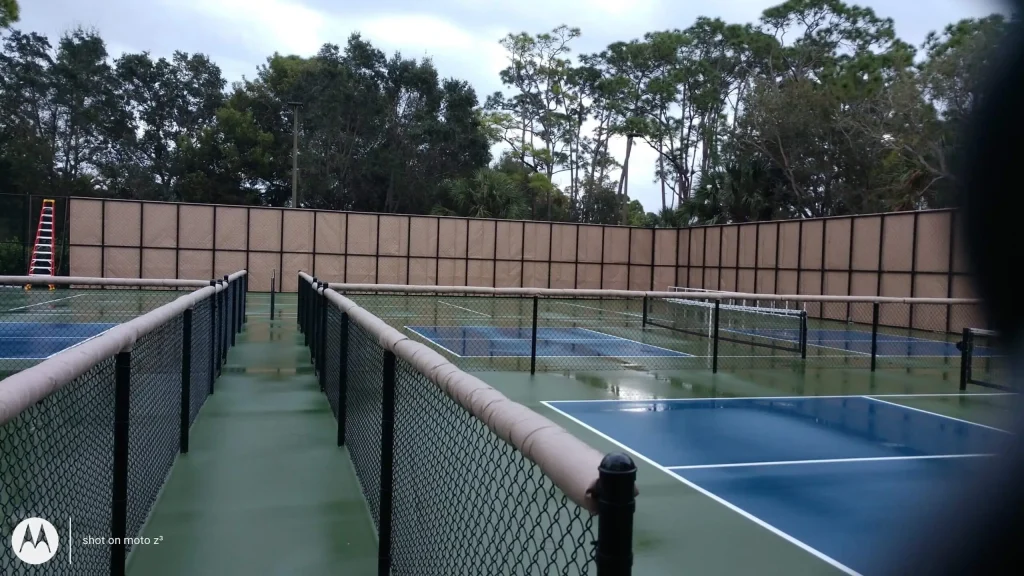
Plan new courts mindfully:
When constructing new courts, it is important to examine the location, orientation, size, and layout of the courts. It is preferred to avoid residential areas or select places that are far from residences or have natural or constructed barriers, such as trees, hills, or walls.
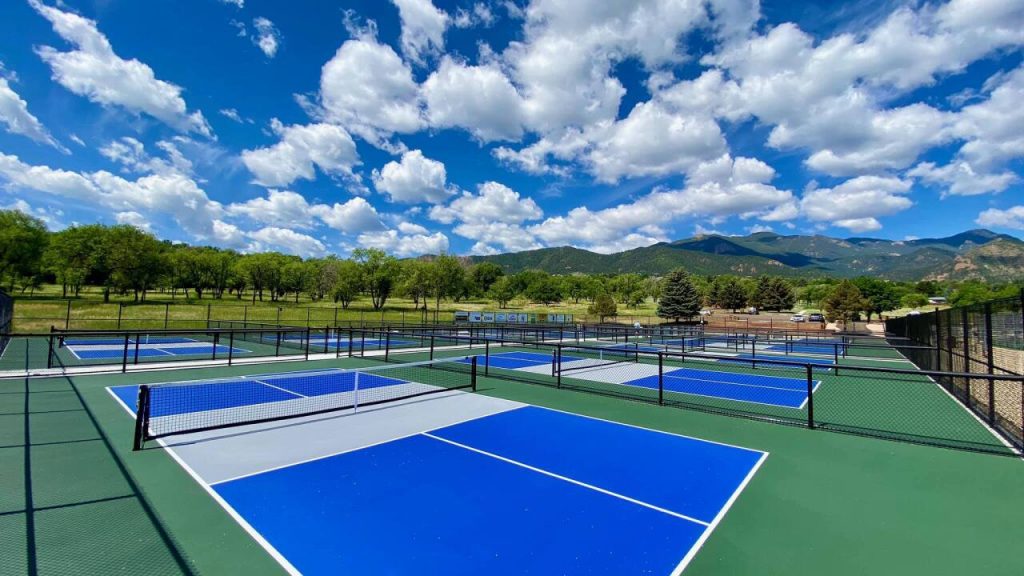
Regulate hours of play:
Another way to lower noise is to limit playtime, especially in the early morning or late evening, when people are more sensitive to noise. It is recommended to avoid playing before 8 a.m. or after 8 p.m. or to observe any local noise regulations. It is also good to tell neighbors about the play hours and respect their reasonable needs.
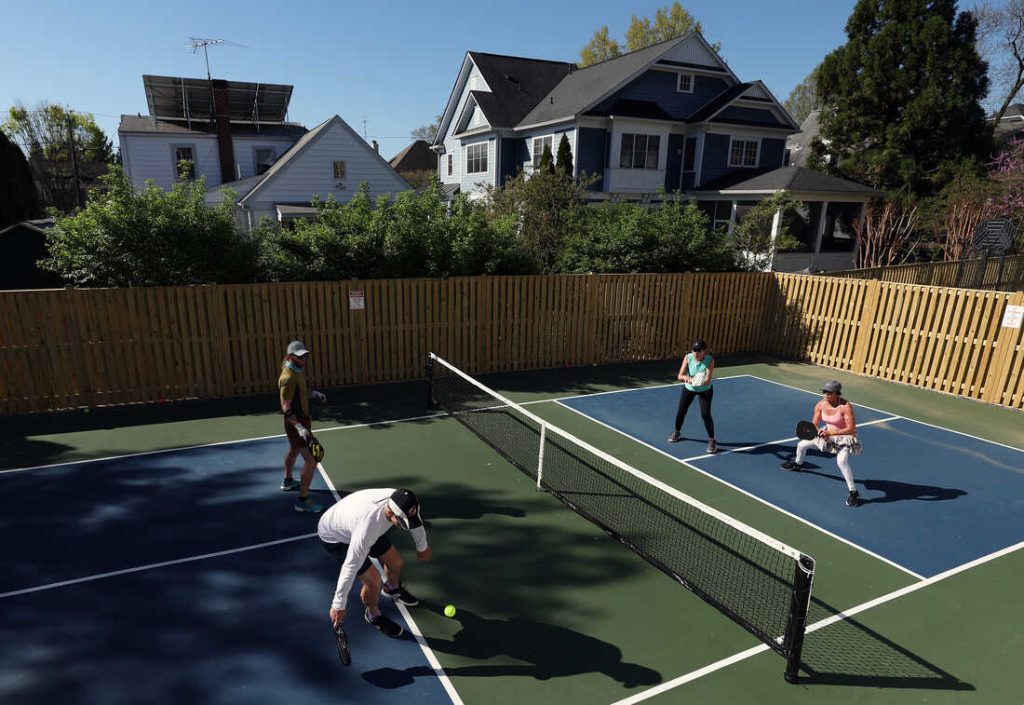
Add a natural tree barrier:
A natural tree barrier can help to minimize noise while also improving the appearance of the court. Trees can serve as a sound barrier by reflecting, scattering, or absorbing sound waves. They may also give the court shade, privacy, and beauty.
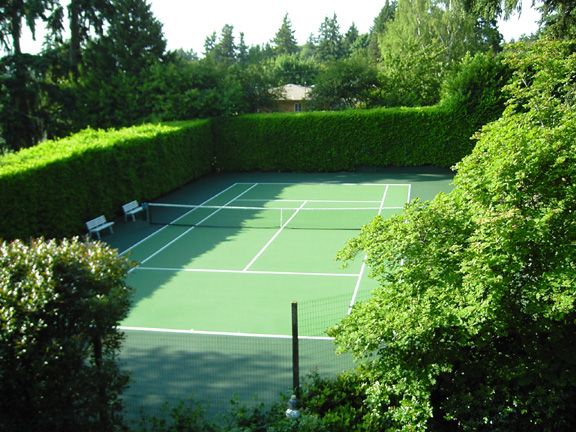
Build a wall:
A wall may be an excellent approach to minimize noise since it can block or reflect sound waves. A wall can be composed of concrete, brick, stone, or wood, and it can be painted, muralized, or planted. Building a wall may provide a quiet and isolated environment for pickleball while also preventing noise from reaching the neighbors.
Court orientation counts:
The orientation of the court can also affect the noise level since it influences the direction and distance of sound propagation. The court should be oriented perpendicular to the prevailing wind direction, as the wind might carry sound away from the court.
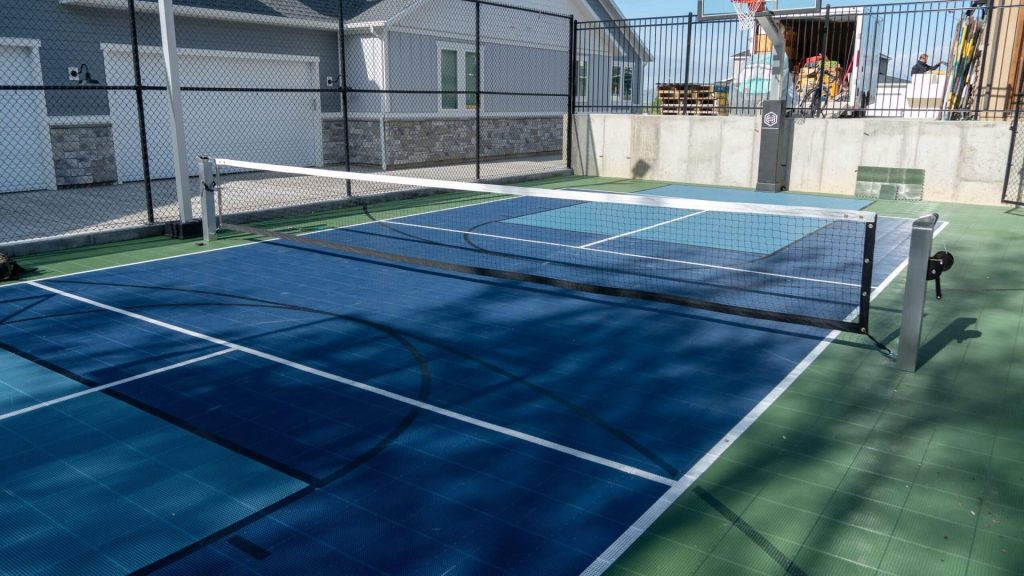
Install baffles:
Made of sound-absorbing materials like foam, cloth, or wood, baffles can reduce noise by up to 15 decibels. Installing baffles can help to minimize noise and improve the court’s acoustics. They may also provide color and texture to the court, making it feel more cozy and comfortable.
Get local residents playing:
The greatest approach to lessen noise is to persuade the neighborhood to play pickleball. They will be more tolerant and supportive of the loudness if they play the game. They will also be more interested and engaged in the community, as well as more willing to work and compromise with the other gamers. They could even become pickleball lovers and activists, spreading the word about the sport.
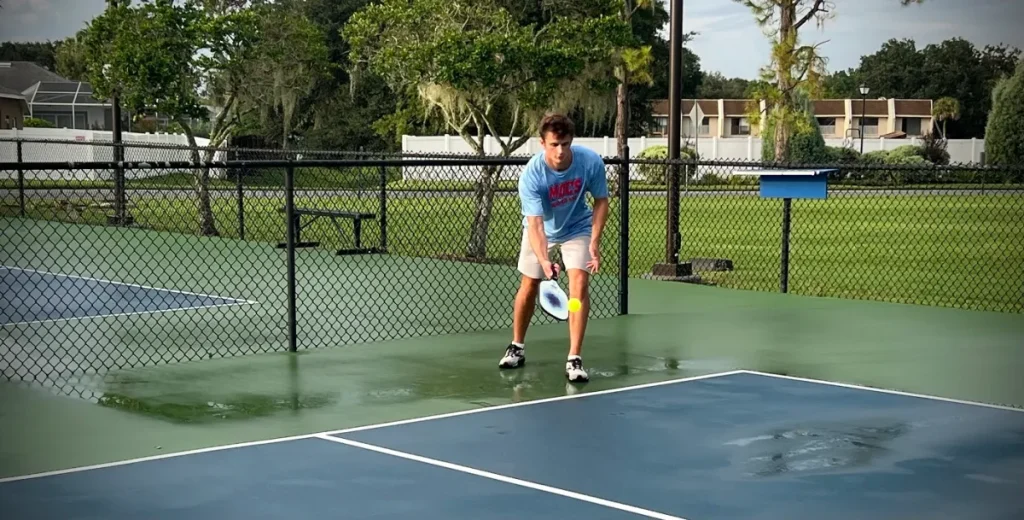
Conclusion
Pickleball is an awesome sport that can bring many people joy and health. However, it can cause noise and frustration to certain people, especially those who live near the pickleball courts. As a result, it is important to come up with strategies that lower noise and make the game more entertaining for everyone. There are several noise-reducing solutions i have discussed. By implementing these ideas, pickleball players and non-players may coexist quietly and cheerfully, and pickleball as a sport can continue to develop and prosper.
FAQs
In special cases, frequent noise complaints may result in limits on Pickleball court usage.
Pickleball organizations provide noise management regulations, such as paddle selection, court scheduling, and contact with neighbors. Following these standards can help in maintaining a positive connection with the community.
Indoor Pickleball courts can use soundproofing methods such as acoustic panels and sound-absorbing flooring materials. These methods contribute to a calmer atmosphere and address noise problems in confined places.

